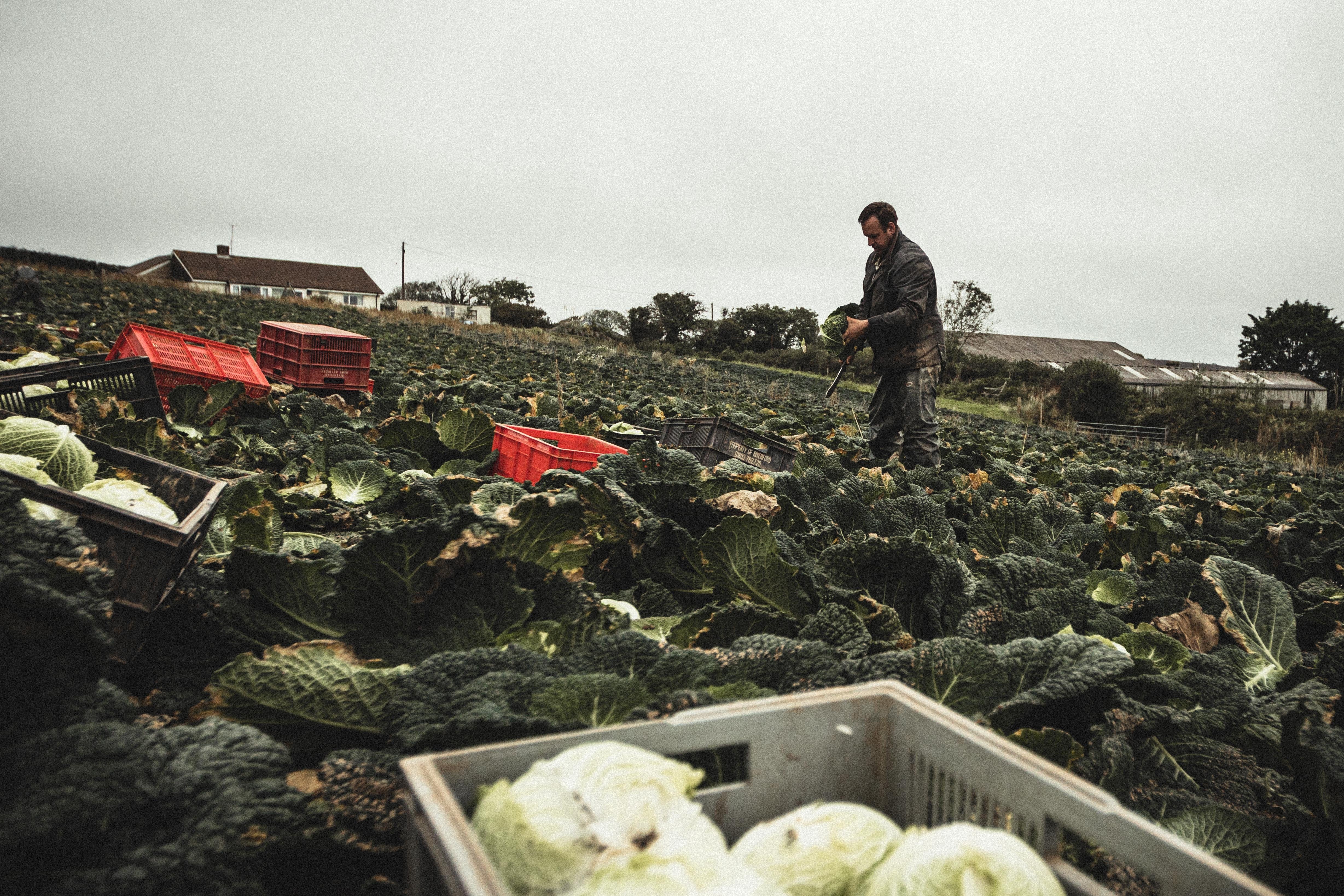The Tuckers’ farm is about 400ft above sea level, not far from the famous Slapton Sands beach; you can see the sea from the farm. The land there is described as fairly ‘light’, level, and without a lot of top soil – but the climate seems to suit veg growing, particularly swedes, which are notoriously hard to grow. The pair also have a flock of 1,200 breeding ewes, plus around 140 acres of corn and cereals (mainly barley).
“We decided to go into organic, and it was the best thing we’ve ever done,” explains Richard. “One of the first things we noticed was the fertiliser bill was a lot lower. And it was a much easier way of life. We always used to put lots of fertiliser on the grass, but what I’ve noticed since going organic and stopping that is actually our grass is stronger than it’s ever been. We use more manure on the ground but also I think the roots now go deeper to find the nutrients. When you put fertiliser on, they don’t have to do much work.”

Much of it was really just going back to the old-fashioned way of farming, says Richard, who learnt from his dad the benefits of rotating fields of grass, corn, and veg to build up different elements of fertility without using artificial chemicals.
“As farmers, we were told we needed to feed the world, and we got all these sprays and fertilisers and yields were amazing, but we’ve gone too far,” says Richard.
“My dad was farming before sprays even came out, and it was all about rotation and leaving the grass ley for three or four years. One thing is clear though: you need livestock to be organic. You need the manure to grow the veg, and where does manure come from? There’s an old-fashioned saying that calls the sheep ‘the golden hoof’ because they make such a good pasture. You can put sheep on bad ground and they clean it up. Basically they eat it down to nothing and then you get the regrowth.”

But it was Trevor’s dad, Richard’s grandad, who really began the farm’s expertise in veg and passed down that knowledge. “It's only me and my dad, Trevor, working on the farm now,” continues Richard. “He’s 71 and was born in the farmhouse where he is today. He’s never been on holiday and has only been to London twice, that’s as far as he’s been. He’s knowledgeable as hell though, thanks to his dad; my grandad was one of the best farmers in the South Hams.”
“They used to call him ‘green fingers’ because he could grow anything. He was Cornish and came up to Devon before the Second World War in 1923. So actually next year we will be celebrating 100 years on the farm. I missed that connection to veg when we were only doing potatoes.”
With a young family, Richard is hopeful the next generation will want to carry on the farming legacy. But until then, he has the same concerns as any parent: getting enough veg into the children. “I had swede last night for dinner – I’ve got four young kids, so we have it mashed, with a dash of butter and some pepper. Some people fry it in chunks in a frying pan, so I might give that a go at some point, and I also like it in a stew or pasty. But for Christmas it will definitely be mashed.”




